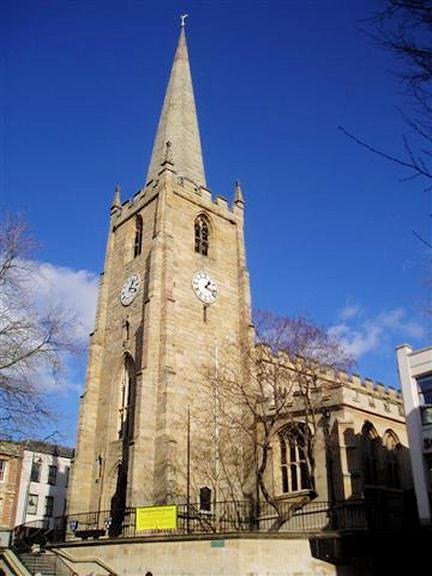Peter Peckard
(1717-1797)
Dr. Peter Peckard is mentioned in The Interesting Narrative in a letter written by Gustavus Vassa and three other letters. In Peckard’s letter to the chairmen of the committee for the abolition of the slave trade, we see that he was a supporter in the Abolition. He was also in this letter attempting to get the protection of Gustavus Vassa and to ask for their help in selling Gustavus Vassa’s book. In the other three letters referencing Dr. P. Peckard we can see that because of his requests of assistance for Gustavus Vassa, he got support in the sale of his Narrative. Vassa demonstrates his respect for Peckard in the letter Vassa wrote to him.
Packard received his education at the University of Oxford. After graduating he became a chaplain in the army in Germany. He was clergyman of the Church of England and held many positions in the Church before becoming Master of Magdalene College in Cambridge in 1781. On 13 June 1755 he married Martha Ferrar.
At University of Cambridge Peckard was known for his support for the abolition of the slave trade, which he made clear as early as 1784. He was the university’s vice chancellor and set a subject for a university essay about the slave trade, the question specifically being “Is it lawful to make men slaves against their will?” He called the slave trade inhumane and unchristian. Thomas Clarkson won the essay competition and went on to help found the Anti-Slave Trade Committee. Clarkson acknowledged Peckard as the man who inspired him.
In a University Sermon in 1784 he preached that to “honour all men” was a Christian duty. He attacked the Atlantic slave trade for its failure to recognise the common humanity and equality of the human race. He claimed that the slave trade violated God’s will and the right to liberty, being a sin against nature and rebellious against God. Peckard wrote many pamphlets and sermons about the cruelty of slave trade, and in one of his sermons he introduced the famous slogan of the abolition movement, “Am I not a man and a brother?”
While doing research on Peter Peckard in two instances he was referred to as “the father of the abolitionist movement” therefore it is by his work as an abolitionist that he is remembered, and he was an inspiration to many who worked towards abolition, even after his death on 8 December 1797.
Gustavus Vassa on P. Peckard in The Interesting Narrative 9th ed.
To THE CHAIRMEN OF THE COMMITTEE FOR THE
ABOLITION OF THE SLAVE TRADE.
Magdalen College, Cambridge, May 26 1790.
GENTLEMEN,
I TAKE the liberty, as being joined with you in the same laudable endeavours to support the cause of humanity in the Abolition of the Slave Trade, to recommend to your protection the bearer of this note GUSTAVUS VASSA, an African; and to beg the favour of your assistance to him in the sale of his book.
I am, with great respect,
GENTLEMEN,
Your most obedient servant,
P. PECKARD.
(Pg. 8)
Manchester, July 23, 1790.
THOMAS WALKER has great pleasure in recommending the sale of the NARRATIVE of GUSTAVUS VASSA to the friends of justice and humanity, he being well entitled to their protection and support, from the united testimonies of the Rev. T. Clarkson, of London; Dr. Peckard, of Cambridge; and Sampson and Charles Lloyd, Esqrs. of Birmingham.
(Pg. 8-9)
Sheffield, August 20 1790.
In consequence of the recommendation of Dr. Peckard, of Cambridge; Messrs. Lloyd, of Birmingham; the Rev. T. Clarkson, of London; Thomas Walker, Thomas Cooper, and Isaac Moss, Esqrs. of Manchester, we beg leave also to recommend the sale of the NARRATIVE of GUSTAVUS VASSA to the friends of humanity in the town and neighbourhood of Sheffield.
Dr. Brown,
Rev. Ja. Wilkinson
Wm. Shore, Esq,
Rev. Edw. Goodwin,
Samuel Marshall
John Barlow.
(Pg. 9)
Hull, November 12, 1792.
THE bearer hereof, Mr. GUSTAVUS VASSA, an African, is recommended to us by the Rev. Dr. Peckard, Dean of Peterborough, and by many other very respectable characters, as an intelligent and upright man; and as we have no doubt but the accounts we have received are grounded on the best authority, we recommend him to the assistance of the friends of humanity in this town, in promoting subscriptions to an interesting Narrative of his Life.
John Sykes, Mayor,
R.A. Harrison, Esq.
Thomas Clarke, Vicar,
Jos. R. Pease, Esq.
William Hornby, Esq. of Gainsborough.
(Pg. 11)
The Revd Dr. Peckard
Very kind & worthy Sir.-
This with my Dutiful Respect - pray pardon this Liberty of mine in Disturbing of you. I will take it a Particular favour if you will be kind enough to see me a minute or two –
Very kind & Worthy Sir-
I am with all Due Respects Gustavus Vassa
(Pg. 366, 40 – Appendix E)
RELATED FILES AND IMAGES
REFERENCES
Coltharp, Duane. “Richard Gough, Peter Peckard, and the Problem of Little Gidding.” Journal of Anglican Studies 18:1 (2020), 74-97. https://doi.org/10.1017/S1740355320000212.
Draper, Nicholas. “British Universities and Caribbean Slavery.” In Dethroning Historical Reputations: Universities, Museums and the Commemoration of Benefactors, edited by Jill Pellew and Lawrence Goldman (London: University of London Press, 2018), 93-106. https://www.jstor.org/stable/j.ctv512v68.14.
Hyam, Ronald. “Peter Peckard, ‘Universal Benevolence’, and the Abolition of the Slave Trade.” In Understanding the British Empire (Cambridge: Cambridge University Press, 2010) https://doi.org/10.1017/CBO9780511760495.
Middleton, Paul. “Dean Peter Peckard; ‘Father of the Abolitionist Movement.’” Peterborough Cathedral. Accessed March 16, 2022. https://www.peterborough-cathedral.org.uk/peter-peckard.aspx.
“Peter Peckard.” 2021. In Wikipedia. https://en.wikipedia.org/w/index.php?title=Peter_Peckard&oldid=1047835988.
The Newsroom. 2020. “Plans for Lasting Memorial to Former Peterborough Dean Known as Father of Slave Abolishment | Peterborough Telegraph.” June 19, 2020. https://www.peterboroughtoday.co.uk/news/people/plans-lasting-memorial-former-peterborough-dean-known-father-slave-abolishment-2888716.
Vassa, Gustavus. The Interesting Narrative and Other Writings, edited with an introduction and notes by Vincent Carretta, reprint of 9th edition (London and New York: Penguin, 2003).
This webpage was last updated on 2022-03-29 by Saloni Pande
